It is a prokaryotic unicellular microorganism that can cause serious diseases or infections, which have different forms of contagion, symptoms, treatment and prevention.


Biological hazards are derived from microorganisms, including bacteria, that enter the host and then spread within the body, sometimes producing harmful substances, toxins, which cause disease and trigger inflammation that can affect the heart, lungs, nervous system, kidneys, and gastrointestinal tract.
WHAT ARE THEY?


There are many zoonotic bacterial diseases, which are diseases or infections transmitted from animals to humans (zoonoses) caused by bacteria.
Although many of these microorganisms have the ability to exist in environments that are more favorable to them, where they can thrive, such as in decomposing organic matter, we cannot forget that bacteria also have the ability to live and reproduce on apparently "clean" surfaces, free from visible contamination.

EXPOSURE TO BACTERIA

Discover some of the bacteria that cause many serious and well-known diseases:
Mycobacterium tuberculosis
Mycobacterium tuberculosis (Mtb), also known as Koch's bacillus, causes the infectious disease tuberculosis. It is transmitted by inhaling droplets expelled by an infected person when coughing, speaking, or sneezing, or through direct contact with contaminated surfaces.
Mycobacterium Tuberculosis
Bacillus Anthracis
It causes infection when people come into direct contact with objects or surfaces contaminated by the bacteria or when they inhale its spores found in the environment. When the spores enter the body, they are "activated," and the bacteria multiply, causing the serious disease anthrax.
Bacillus Anthracis
Spirochete Leptospira
One of the various pathogenic serotypes of the spirochete Leptospira causes leptospirosis, a highly dangerous disease that can progress quickly and lead to death. It is acquired through direct or indirect contact with the urine of animals, particularly rodents, and/or infected hosts.
Spirochete Leptospira
Staphylococcus aureus
This bacterium is responsible for several types of infections in the human body. Once the bacteria enters the human body, it can invade the bloodstream, causing serious infections such as sepsis and septic shock. Other possible infections include pneumonia, pyelonephritis, and osteomyelitis.
Staphylococcus Aureus
Escherichia coli
E. coli is a large and diverse group of bacteria. Some types of this bacteria are extremely dangerous to human health, causing diarrhea, urinary tract infections, respiratory illnesses, pneumonia, and other diseases.
Escherichia coli
Clostridium Difficile
It is a toxin-producing bacterium present in approximately 31% of healthy adults and 20% of hospitalized patients. C. difficile is transmitted fecal-orally through spores deposited on surfaces that individuals may come into contact with.
Clostridium Difficile
HOW DOES TRANSMISSION OCCUR?


Bacterium


Inhalation of droplets expelled by someone infected.

Direct contact with contaminated surfaces and objects.

Physical contact with infected people or animals.
DEATHCLEAN INTERVENTION

DEATHCLEAN® is a certified company specializing in cleaning and disinfecting areas contaminated by microorganisms, including bacteria, ensuring that it provides customers with a professional disinfection solution.

ACCREDITED TEAMS
All of our technicians have training and experience to work in biological risk areas.

Technical procedures
We have operational safety and intervention procedures for biological risk.

HIGH-LEVEL PRODUCTS
We only use disinfectants certified and registered as high level disinfection (HDL).

LEGAL CERTIFICATION
At the end of each intervention, we present a legally valid disinfection certificate as a guarantee.
RELATED SERVICES

BACTERIA – Cleaning and Disinfection
It is a single-celled, prokaryotic microorganism that can cause serious diseases or infections, which have different forms of transmission, symptoms, treatment, and prevention. Biological hazards are derived from microorganisms, including bacteria, which enter the host and then spread within the body, sometimes producing harmful substances, toxins, which cause disease and trigger inflammation that can affect the heart, lungs, nervous system, kidneys, and gastrointestinal tract.
As they are tiny organisms, microorganisms that cannot be seen without a microscope, only certified companies with the necessary knowledge and experience in this type of cleaning and disinfection, such as DEATHCLEAN®, is that they can guarantee its complete elimination. No matter what the bacteria or the area to be treated, DEATHCLEAN® holds all the knowledge to solve your problem, decontaminating all affected surfaces and eliminating all pathogenic microorganisms.
We are prepared to offer a swift response, with a specialized and precise solution, where our focus is always on your safety and ensuring a space free from contamination by biological agents.

WHAT ARE THEY?

There are many zoonotic bacterial diseases, which are diseases or infections transmitted from animals to humans (zoonoses) caused by bacteria.
Although many of these microorganisms have the ability to thrive in environments more favorable to them, such as decaying organic matter, we must not forget that bacteria also have the ability to live and reproduce on seemingly "clean" surfaces, free of visible contamination. Unlike viruses, bacteria can reproduce almost anywhere, whether in water, soil, or even in our own bodies.
Bacteria are microorganisms that have numerous defense mechanisms and protect themselves from the most hostile environments, thus possessing a remarkable capacity for survival, even living in radioactive waste. Bacterial defenses include biofilm formation, spore production, and resistance to certain antibiotics.
The most complex feature of microorganisms is that they are invisible, which is why they are so difficult to eliminate. This is one of the problems that has been raised and that DEATHCLEAN® resolves, ensuring that after our disinfection the space is free from any type of biological risk contamination.
We must bear in mind that certain bacteria have the potential to be used as biological weapons (biological warfare agents). These bacteria include those that cause anthrax (a potentially fatal infection caused by Bacillus anthracis), botulism (poisoning caused by toxins produced by the bacterium Clostridium botulinum), plague (a serious infection caused by the bacterium Yersinia pestis), and tularemia (infection caused by the bacterium Francisella tularensis).
That's why it's increasingly important for companies like DEATHCLEAN® act in the cleaning and disinfection of places contaminated by bacteria, as only certified companies can guarantee the use of disinfectant biocides tested to eliminate all types of bacteria.

EXPOSURE TO BACTERIA
Discover some of the bacteria that cause many serious and well-known diseases:
Mycobacterium tuberculosis
Mycobacterium tuberculosis (Mtb), also known as Koch's bacillus, causes the infectious disease tuberculosis. It is transmitted by inhaling droplets expelled by an infected person when coughing, speaking, or sneezing, or through direct contact with contaminated surfaces.
Mycobacterium Tuberculosis
Bacillus Anthracis
It causes infection when people come into direct contact with objects or surfaces contaminated by the bacteria or when they inhale its spores found in the environment. When the spores enter the body, they are "activated," and the bacteria multiply, causing the serious disease anthrax.
Bacillus Anthracis
Spirochete Leptospira
One of the various pathogenic serotypes of the spirochete Leptospira causes leptospirosis, a highly dangerous disease that can progress quickly and lead to death. It is acquired through direct or indirect contact with the urine of animals, particularly rodents, and/or infected hosts.
Spirochete Leptospira
Staphylococcus aureus
This bacterium is responsible for several types of infections in the human body. Once the bacteria enters the human body, it can invade the bloodstream, causing serious infections such as sepsis and septic shock. Other possible infections include pneumonia, pyelonephritis, and osteomyelitis.
Staphylococcus Aureus
Escherichia coli
E. coli is a large and diverse group of bacteria. Some types of this bacteria are extremely dangerous to human health, causing diarrhea, urinary tract infections, respiratory illnesses, pneumonia, and other diseases.
Escherichia coli
Clostridium Difficile
It is a toxin-producing bacterium present in approximately 31% of healthy adults and 20% of hospitalized patients. C. difficile is transmitted fecal-orally through spores deposited on surfaces that individuals may come into contact with.
Clostridium Difficile
How does transmission occur?


Inhalation of droplets expelled by someone infected.

Direct contact with contaminated surfaces and objects.

Physical contact with infected people or animals.
DEATHCLEAN INTERVENTION
THE DEATHCLEAN® is a certified company specializing in cleaning and disinfecting areas contaminated by microorganisms, including bacteria, ensuring that it provides customers with a professional disinfection solution.

ACCREDITED TEAMS
All of our technicians have training and experience to work in biological risk areas.

Technical procedures
We have operational safety and intervention procedures for biological risk.

HIGH-LEVEL PRODUCTS
We only use disinfectants certified and registered as high level disinfection (HDL).

LEGAL CERTIFICATION
At the end of each intervention, we present a legally valid disinfection certificate as a guarantee.
Legislation

- Use of personal protective equipment (PPE);
- Specialized and certified training;
- Safety operating procedures.
- Issuance of electronic waste tracking guides (eGar) for the transport of infectious hazardous waste.
- That the responsibility for the waste belongs to the producer, who can only cease this responsibility when he resorts to a licensed entity, which assumes responsibility for the waste, giving it the appropriate legal direction;
- Fines associated with the incorrect classification and disposal of hazardous waste; this waste cannot be placed in the common waste container.
RELATED SERVICES





